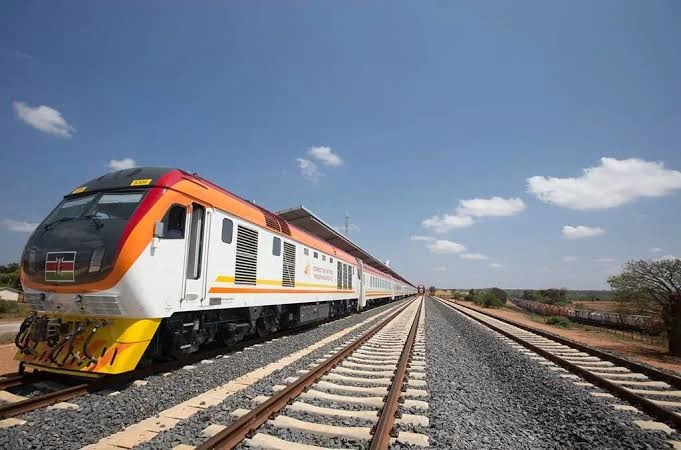Kenya has laid plans to raise as much as $4 billion by securitizing an import levy to fund the extension of a China-built railway.These funds will be utilized in Naivasha-Kisumu-Malaba SGR Extension. Currently, Kenya is in talks with Etihad Rail to run freight operations on the railway line.
The East African nation will utilize its the railway development levy to raise funds to construct a section to the southwestern Kenyan city of Kisumu and Malaba on the Ugandan border. This was revealed by the Transport Cabinet Secretary Davis Chirchir. Furthermore, The Treasury collects approximately $387 million annually from the tariff that is usually charged at a rate of 2% of the value of imports into Kenya. This was also revealed by the minister.
Also read: Kenya’s SGR Extension Seeks UAE Partnership
Naivasha-Kisumu-Malaba SGR Extension Project Factsheet
Cost: approximately $4 billion.
Etihad Rail’s role: The partnership with Etihad Rail is focused on the operational aspect of the railway. Kenya is reportedly in talks with Etihad Rail for a concession agreement where the UAE’s national railway operator would:
- Invest in rolling stock: This includes acquiring locomotives and wagons for freight services.
- Operate freight services: Etihad Rail would be responsible for the day-to-day operations of the freight services on the extended SGR line.
- Commercial viability: According to Kenya’s Transport Secretary, Etihad Rail aims to handle a freight volume of about 17 million metric tonnes annually to make the concession commercially viable.
Kenya’s government’s role: under the proposed model, the Kenyan government, through the Kenya Railways Corporation (KRC), would maintain ownership of the railway infrastructure and handle engineering and maintenance.
Current status: feasibility, environmental and social impact studies for the extension have been completed. Preliminary activities, such as land surveying and resettlement plans, are underway.
Construction start date: the government is actively seeking financing, with construction potentially starting by the end of 2025.
Significance: The partnership with Etihad Rail and the extension of the SGR are viewed as critical for improving regional trade, enhancing connectivity, and boosting economic growth in East Africa. It marks a shift in Kenya’s strategy to involve private operators in the SGR’s commercial activities.
Kenya’s SGR Completion Date
The $5 billion SGR was completed in 2019. The railway links the port of Mombasa to Naivasha through Nairobi. Additionally, the railway infrastructure stands as Kenya’s largest infrastructure project since independence.
As outlined in the expansion plan, Kenya Railways Corp will be responsibile for engineering and maintenance. On the other hand, private operators will run services.
Kenya’s government plans to extend the network into South Sudan, Ethiopia, and the Democratic Republic of the Congo. This extension will make freight operations more commercially viable.
Etihad Rail Criteria for Justifying Investment
Etihad Rail requires freight volumes of at least 17 million tons annually to justify an investment. Currently, they are exploring options which include transporting about 3 million tons of crude oil each year from Kenya’s northern oilfields.
Also read: China Back as Kenya-Uganda SGR Financier

